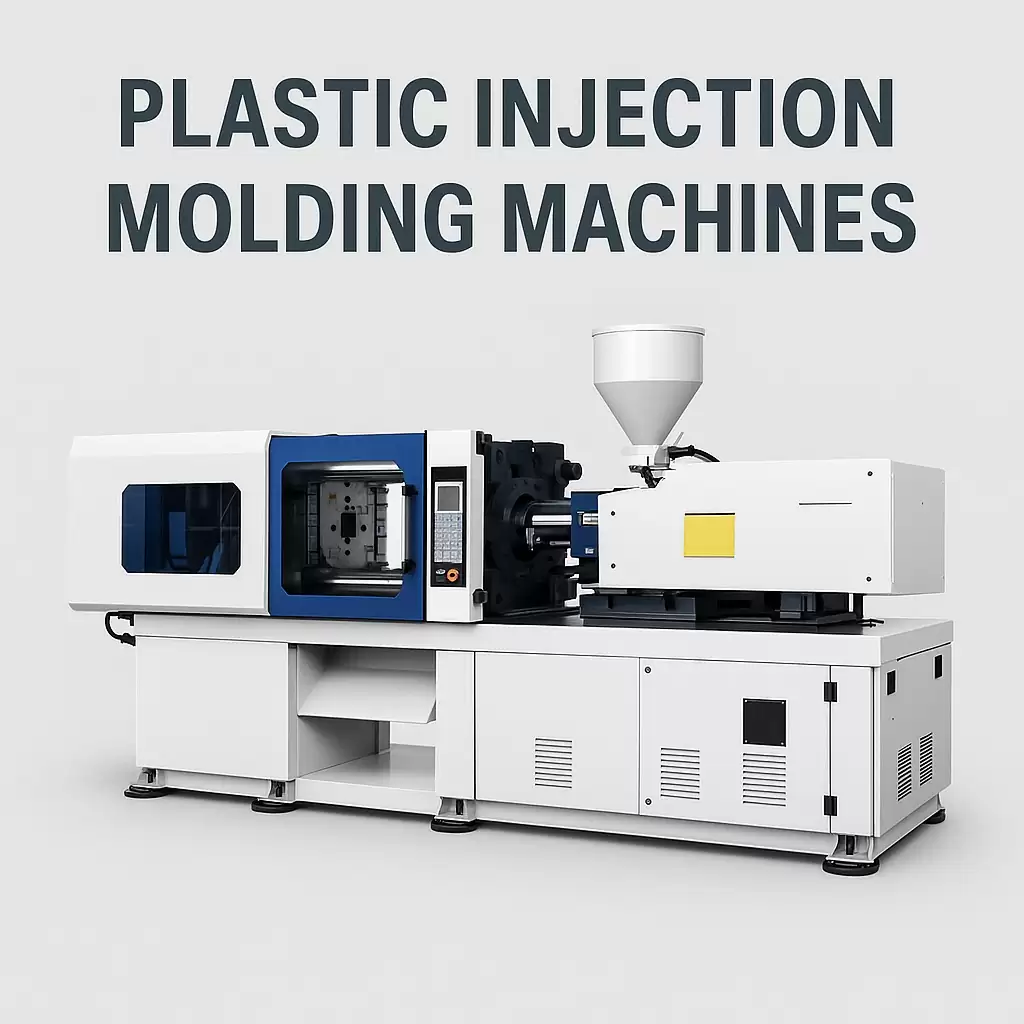Plastic Injection Molding Machines: The Engine of Every High-Performance Molding Cell
Plastic Injection Molding Machines: The Engine of Every High-Performance Molding Cell
From a two-gram micro-gear to a one-meter appliance panel, every molded part begins inside a plastic injection molding machine. Understanding the technology behind today’s presses helps buyers, engineers, and sourcing managers make smarter tooling decisions—and extract every ounce of efficiency from their supply chain. Below is a focused tour of machine architectures, key specifications, and emerging innovations, plus a look at how the TaiwanMoldMaker.com partner network deploys these assets to accelerate launch schedules and lower total landed cost.
1 Core Architecture—Clamping, Injection, Control
| Section | What It Does | Why It Matters to Part Quality |
|---|---|---|
| Clamping Unit | Applies tonnage to keep halves closed during fill & pack | Too little = flash; too much = parting-line wear, higher wear |
| Injection Unit | Plastifies resin, meters shot, and drives melt into cavity | Screw diameter & L/D ratio dictate shot size, mixing, shear |
| Control System | Coordinates speed, pressure, pack, hold, cooling & ejection | Modern servo/PLC loops cut shot-to-shot variation < 0.5 s |
Rule of thumb: Clamp tonnage (kN) ≈ projected part area (cm²) × 0.45–0.55 kN/cm² for commodity resins, higher for glass-filled grades.
2 Machine Classes—Which One Fits Your Program?
| Class | Typical Tonnage Range | Best For | TaiwanMoldMaker.com Availability |
|---|---|---|---|
| Micro/Mini Electric | 15–60 t | Lenses, medical micro-fluidic chips | ✔️ Clean-room ISO 7 cells |
| Servo-Hydraulic Hybrid | 150–450 t | Consumer electronics, automotive bezels | ✔️ General production cells |
| All-Electric | 50–650 t | Tight CpK parts, energy-sensitive factories | ✔️ 40 % of network presses |
| Two-Platen Large | 700–3 000 t | Appliance tubs, EV battery covers, pallets | ✔️ Two plant locations |
| Horizontal LSR | 60–350 t | Seals, wearable straps, baby-care components | ✔️ ISO 13485 certified line |
Energy fact: A 350 t all-electric press typically consumes 30–50 % less kWh/kg resin than an equivalent hydraulic model—one reason TaiwanMoldMaker.com prioritises electric upgrades during capacity expansions.
3 Key Performance Specs & How to Read Them
-
Injection Rate (cm³/s) – Higher is not always better; match to flow length/thickness of your part to avoid shear burn.
-
Plasticising Capacity (kg/h) – Critical for glass-filled or flame-retardant grades that need longer melt residence.
-
Screw Compression Ratio – 2.0–2.4 : 1 for commodity PP/PE, 1.6–1.8 : 1 for shear-sensitive POM or PC.
-
Linear Transducer Resolution – < 0.01 mm ensures repeatable V/P transfer for thin-wall components.
-
Servo Response Time – The faster the loop (≤ 5 ms), the tighter the weight consistency shot-to-shot.
4 Automation & Industry 4.0
4.1 6-Axis Robots & EOAT
Demould, degate, and gate-seal inspection happen in < 1 s, freeing operators to run multiple presses.
4.2 MES & OPC UA Connectivity
Every network machine streams temperature, pressure, cycle-time, and energy data to a central dashboard. Buyers receive live CpK & OEE reports via secure API—no surprises at PPAP.
4.3 AI-Driven Process Control
Pilot projects use cavity-pressure signatures to predict drift and auto-adjust pack/hold, reducing scrap by 35 %.
5 Selecting the Right Press for Your Tool
| Tool Attribute | Press Consideration |
|---|---|
| 8-cavity, hot-runner PC connector | All-electric 180 t for speed & colour change purity |
| Two-shot PC/TPU smartwatch bezel | Rotary-table hybrid 350 t with dual barrels |
| 1 m appliance front-load door | Two-platen 1 800 t with 8-point toggle clamp |
| LSR nasal cannula pad | Horizontal 150 t LSR press + closed-loop dosing |
Early alignment between tool designer and machine parameters—gate size, screw type, clamp stroke—avoids costly retrofits and cuts T-0 to SOP by up to four weeks.
6 How TaiwanMoldMaker.com Maximises Machine Assets
-
48-Hour DFM Pack – gate studies include recommended press class & auxiliary equipment.
-
Bridge-Tool Credits – start in 7075 Al on a 120 t electric; roll cost into H13 steel on a 350 t hybrid when demand scales.
-
Inline Secondary Ops – pad-print, laser mark, ultrasonic weld next to the press to eliminate freight legs.
-
Sustainability Dashboard – real-time kWh/kg resin & CO₂/part reporting meets ESG scorecards.
Explore Our End-to-End Services
-
✔️ Mold Service
-
✔️ Molding
7 Take the Next Step
-
Upload your CAD & annual volume forecast.
-
Receive a press-fit recommendation within 48 hours—including energy, cycle time, and cost models.
-
Approve the optimal tooling path and see first shots in as little as three weeks.
The right machine partnership turns good tools into market-leading products. Tap the TaiwanMoldMaker.com network to match precision tools with best-in-class injection-molding technology— and hit every milestone from EVT to mass production with confidence.









